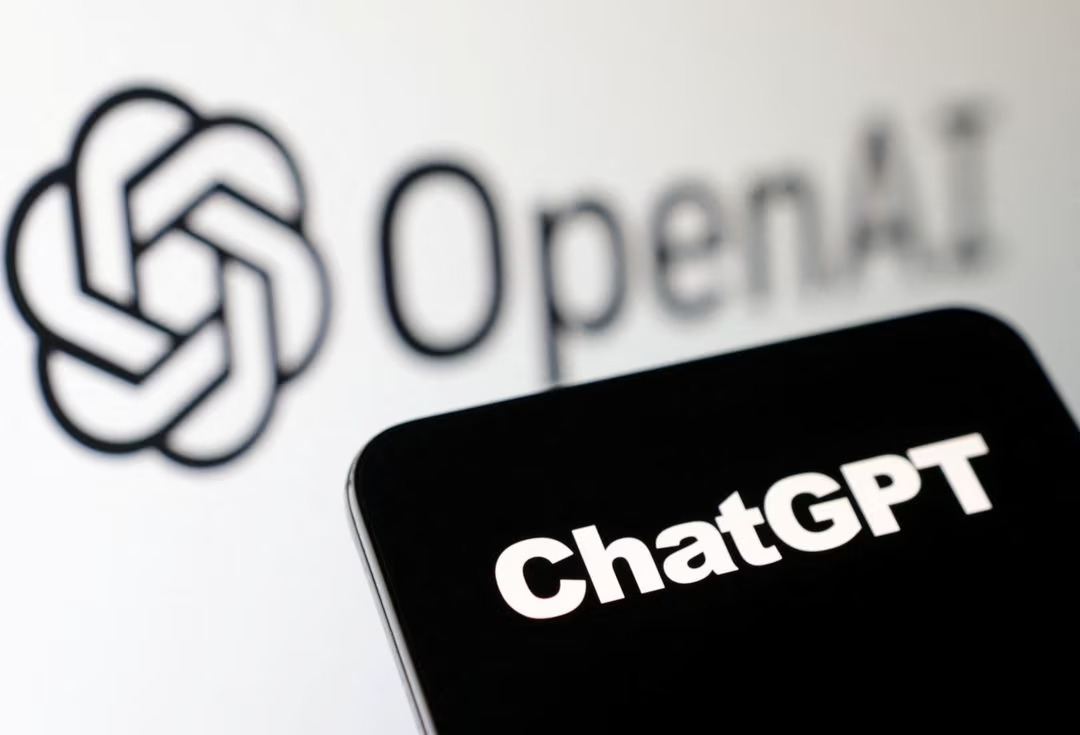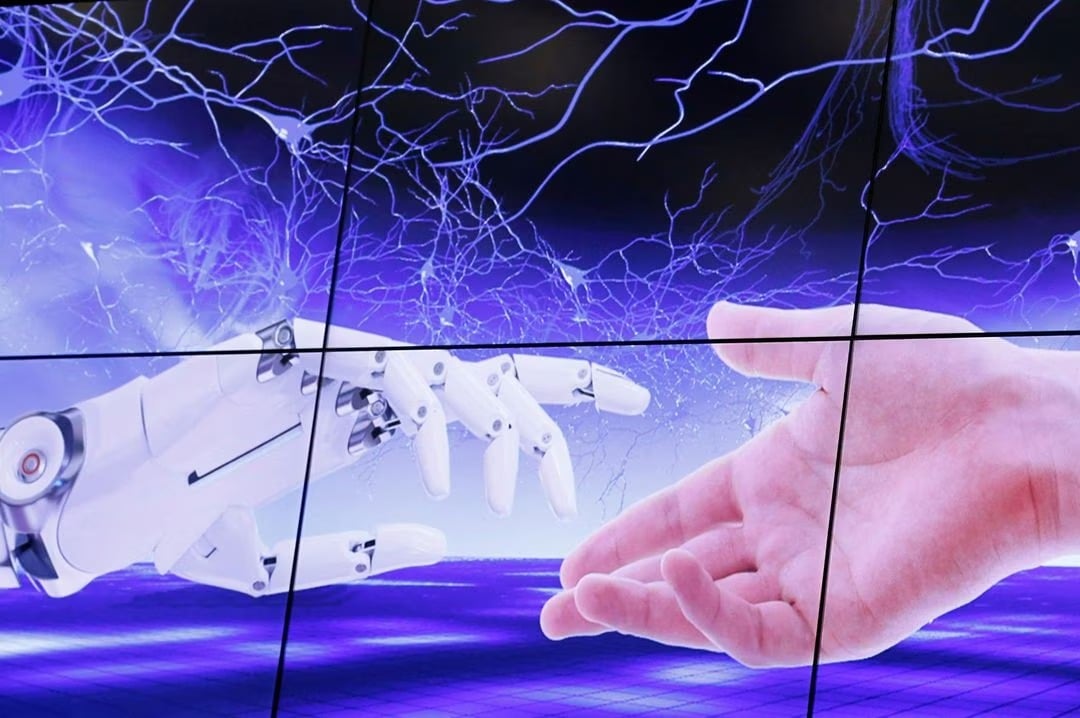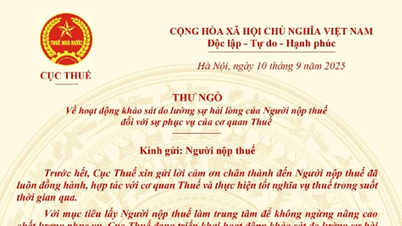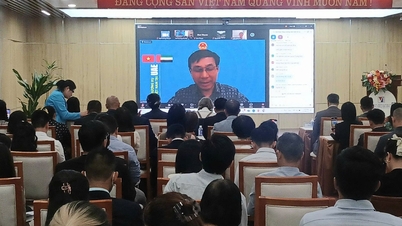The rapid and unexpected development of ChatGPT - an artificial intelligence (AI) chatbot with superior functions has changed human life to some extent, especially in the way of working. However, the risks associated with this technology have raised many concerns for authorities in many countries, especially worries about user data.
In the context that the world still lacks a solid new legal framework to effectively manage AI and ensure high reliability for users, many countries have begun to take measures to regulate the use of ChatGPT and AI in general to minimize the risks that this technology brings.
Many countries "take action" with AI
Italy is at the forefront of issuing a decision to ban ChatGPT.
On March 31, Italian authorities issued a temporary ban on the ChatGPT app due to privacy concerns and the app's failure to verify users aged 13 and older as required by Italy. At the same time, Italy also said it would open an investigation into how OpenAI uses user data.

Following Italy's ban on ChatGPT, many countries have taken action against the app. (Photo: Reuters).
Italy's data protection authority has given OpenAI - the company that created ChatGPT - a deadline of the end of April to meet data protection and privacy requirements before resuming normal operations in the country.
Immediately after Italy's decision, many countries began to "follow" this country in blocking ChatGPT due to concerns related to security and data privacy issues.
French and Irish privacy and security regulators have contacted their Italian counterparts to learn about the basis for the ban. France's privacy watchdog CNIL said on April 11 that it was investigating several complaints about ChatGPT.
Germany's data protection commissioner said Berlin is likely to "follow in Italy's footsteps" in blocking ChatGPT.
Notably, the European Data Protection Authority (EDPB) established a task force on ChatGPT on April 13, stating: “The EDPB member states discussed the recent enforcement action by the Italian data protection authority against OpenAI regarding the ChatGPT service. The EDPB decided to launch a task force to promote cooperation and exchange information on possible enforcement actions.”
In addition, European Union (EU) lawmakers are also discussing the EU AI Act, which would regulate anyone providing products or services using AI, including systems that generate content, predictions, recommendations or decisions that affect the environment. The EU also proposed classifying different AI tools according to their risk level, from low to unacceptable.
Spain's data protection agency AEPD announced it is conducting a preliminary investigation into ChatGPT's data breaches.
In Australia, the Ministry of Science and Technology announced on April 12 that the government had asked its scientific advisory body for advice on how to respond to AI and was considering next steps.
The move raises questions about the safety of AI and what governments can do to mitigate its risks. A March report by consultancy KPMG and the Australian Information Industry Association found that two-thirds of Australians said there were insufficient laws or regulations to prevent AI from being misused, while less than half believed AI was being used safely in the workplace.

Many countries have begun taking measures to regulate AI technology. (Photo: Reuters).
In the UK, the government has said it intends to split responsibility for regulating AI between human rights, health and safety, and competition bodies, rather than creating a new regulator.
Recently, the Democratic majority leader in the US Senate, Chuck Schumer, drafted and issued a new regulatory framework on AI that could prevent catastrophic damage to the country. Mr. Schumer's proposal requires companies to allow independent experts to review and test AI technology before releasing or updating it.
Earlier on April 11, the US Department of Commerce said it was seeking public comment on AI accountability measures.
Meanwhile, the Center for Artificial Intelligence and Digital Policy in the US has asked the Commerce Commission to block OpenAI from releasing new commercial releases of GPT-4, arguing that the technology is “biased, deceptive, and poses risks to privacy and public safety.”
Meanwhile, in Japan, Digital Transformation Minister Taro Kono said he wants the upcoming G7 digital ministers' meeting, scheduled to take place at the end of April, to discuss AI technologies including ChatGPT and deliver a unified G7 message.
China recently announced planned measures to regulate AI services, saying companies that ship AI technology must submit security assessments to authorities before launching the services on the market.
Experts warn of dangers from AI

Some experts say AI could lead to a “nuclear-level disaster.” (Photo: Reuters).
A survey released by Stanford University's Artificial Intelligence Institute in early April found that 36% of researchers believe AI could lead to a “nuclear-level catastrophe,” further underscoring existing concerns about the rapid development of the technology.
Meanwhile, 73% of AI will lead to “revolutionary social change”.
The report says that while these technologies offer capabilities unimaginable a decade ago, they are also prone to illusion, bias, and abuse for nefarious purposes, creating ethical challenges for users of these services.
The report also noted that the number of “incidents and controversies” related to AI has increased 26-fold over the past decade.
Last month, billionaire Elon Musk and Apple co-founder Steve Wozniak were among thousands of tech experts who signed a letter calling for a pause in the training of AI systems more powerful than Open AI's GPT-4 chatbot, saying “powerful AI systems should only be developed once we are confident that their impact will be positive and their risks will be manageable.”
Yongkang (Reuters, AL Jazeera, ABC)
Source


![[Photo] Prime Minister Pham Minh Chinh receives Director General of the World Intellectual Property Organization (WIPO) Daren Tang](https://vphoto.vietnam.vn/thumb/1200x675/vietnam/resource/IMAGE/2025/9/25/64a5925ecc2243e09bd7a5695b52e295)





























































































Comment (0)